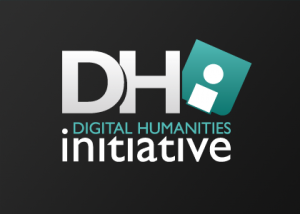Hamilton College’s Digital Humanities Initiative (DHi):
A Liberal Arts Model for Future Scholarship, Research, and Teaching
Angel David Nieves, Ph.D., Associate Professor & Chair, Africana Studies Department
Co-Director, Digital Humanities Initiative (DHi)
 Since the fall of 2008 I have had the distinct privilege of working with an interdisciplinary team of scholars, IT professionals, programmers, and students in the development of a comprehensive digital humanities program at Hamilton College, a small, private liberal arts college in upstate New York. Today, liberal arts colleges and universities face a set of unprecedented challenges as they prepare their students for employment, leadership, and service. Specifically, in the wake of America’s fiscal crisis, they must attempt to justify the growing costs of attending those four-year private schools with a history of extreme privilege. Educators at the college level are also being asked to expand opportunities for students of science, technology, mathematics, and engineering while these same educators grapple with changes in research and teaching triggered by the revolution in digital technologies. The liberal arts model, which has maintained a strong and principled foundation in teaching undergraduates, can no longer ignore the kinds of pedagogical shifts and epistemological questions that have resulted with the growth of computational technology. Schools such as Hobart and William Smith, Union, Colgate, St. Lawrence, Skidmore, and Hamilton College, known among their peers as the “New York 6 Liberal Arts Consortium (NY6)” have all embraced the advent of new digital technologies in different ways based on existing resources and institutional leadership. The Digital Humanities Initiative (DHi) at Hamilton College is a collaboratory where new media and computing technologies are used to promote humanities-based teaching, research, and scholarship across the liberal arts. DHi creates opportunities for new interdisciplinary models and methods of collaboration between faculty and students. These activities support a fundamental shift in humanities research, leveraging the potential of technology to access and manipulate rich media collections in ways that increase collaborative scholarship (not only within Hamilton humanities but also, potentially, with other institutions around the world) and lead to the generation of new knowledge.
Since the fall of 2008 I have had the distinct privilege of working with an interdisciplinary team of scholars, IT professionals, programmers, and students in the development of a comprehensive digital humanities program at Hamilton College, a small, private liberal arts college in upstate New York. Today, liberal arts colleges and universities face a set of unprecedented challenges as they prepare their students for employment, leadership, and service. Specifically, in the wake of America’s fiscal crisis, they must attempt to justify the growing costs of attending those four-year private schools with a history of extreme privilege. Educators at the college level are also being asked to expand opportunities for students of science, technology, mathematics, and engineering while these same educators grapple with changes in research and teaching triggered by the revolution in digital technologies. The liberal arts model, which has maintained a strong and principled foundation in teaching undergraduates, can no longer ignore the kinds of pedagogical shifts and epistemological questions that have resulted with the growth of computational technology. Schools such as Hobart and William Smith, Union, Colgate, St. Lawrence, Skidmore, and Hamilton College, known among their peers as the “New York 6 Liberal Arts Consortium (NY6)” have all embraced the advent of new digital technologies in different ways based on existing resources and institutional leadership. The Digital Humanities Initiative (DHi) at Hamilton College is a collaboratory where new media and computing technologies are used to promote humanities-based teaching, research, and scholarship across the liberal arts. DHi creates opportunities for new interdisciplinary models and methods of collaboration between faculty and students. These activities support a fundamental shift in humanities research, leveraging the potential of technology to access and manipulate rich media collections in ways that increase collaborative scholarship (not only within Hamilton humanities but also, potentially, with other institutions around the world) and lead to the generation of new knowledge.
